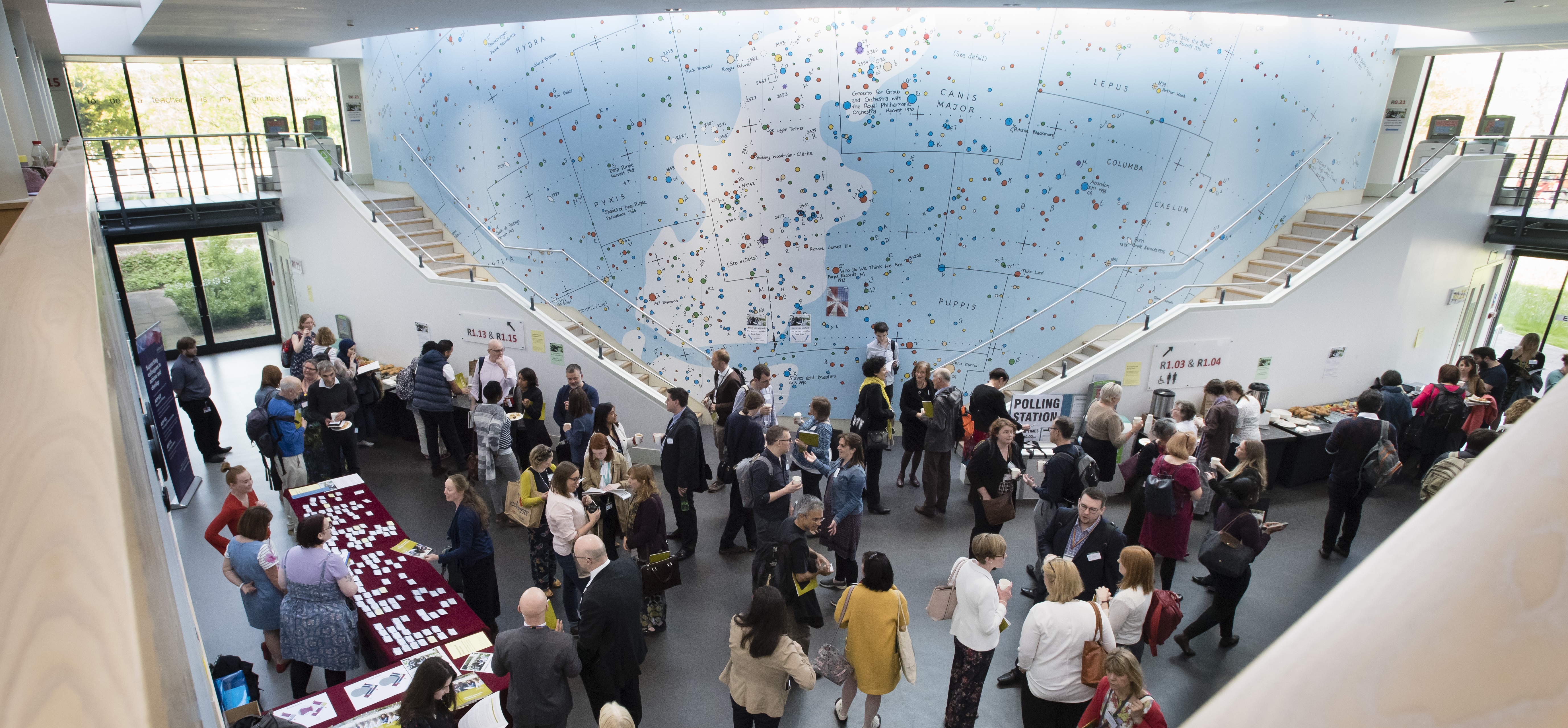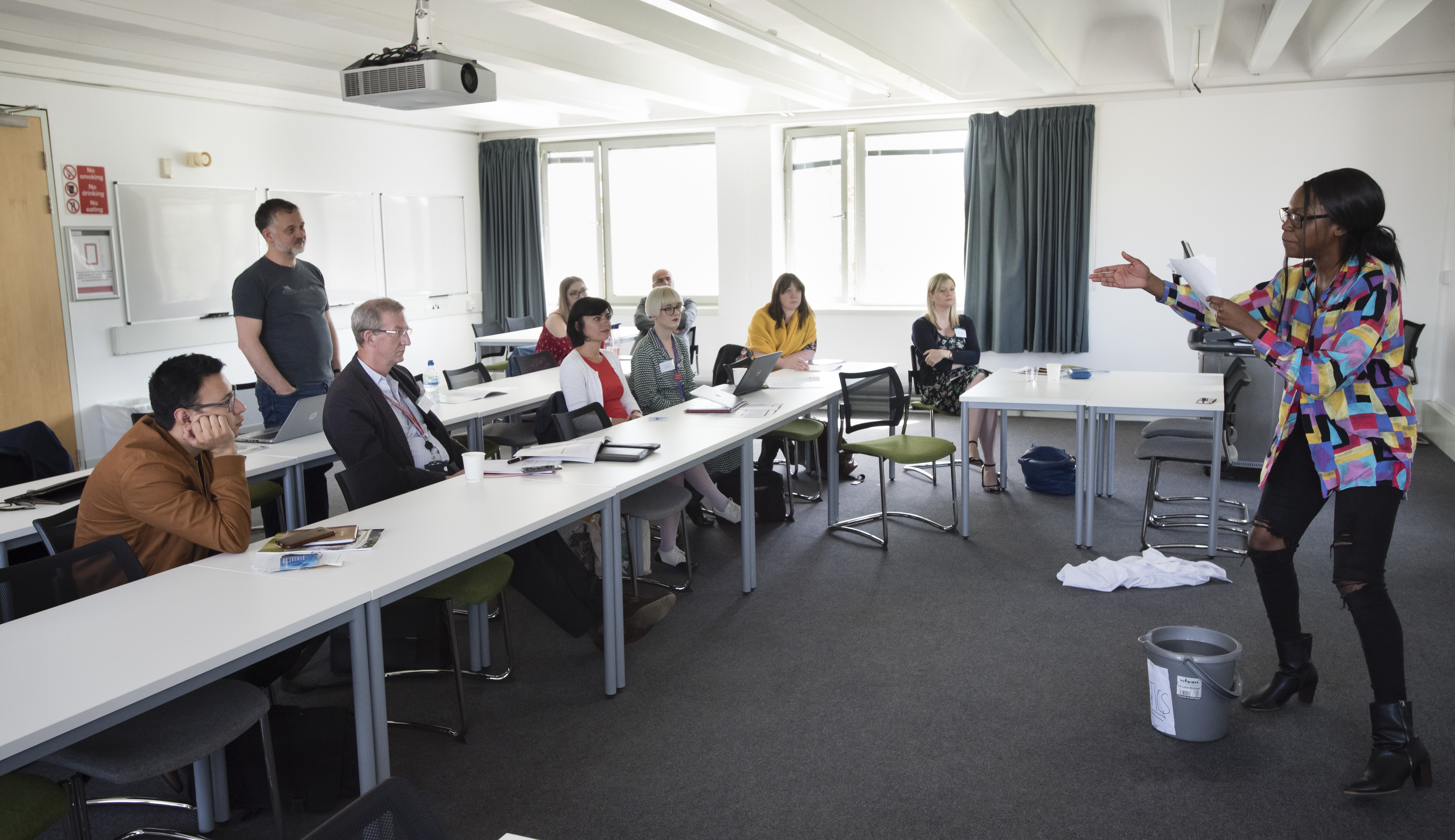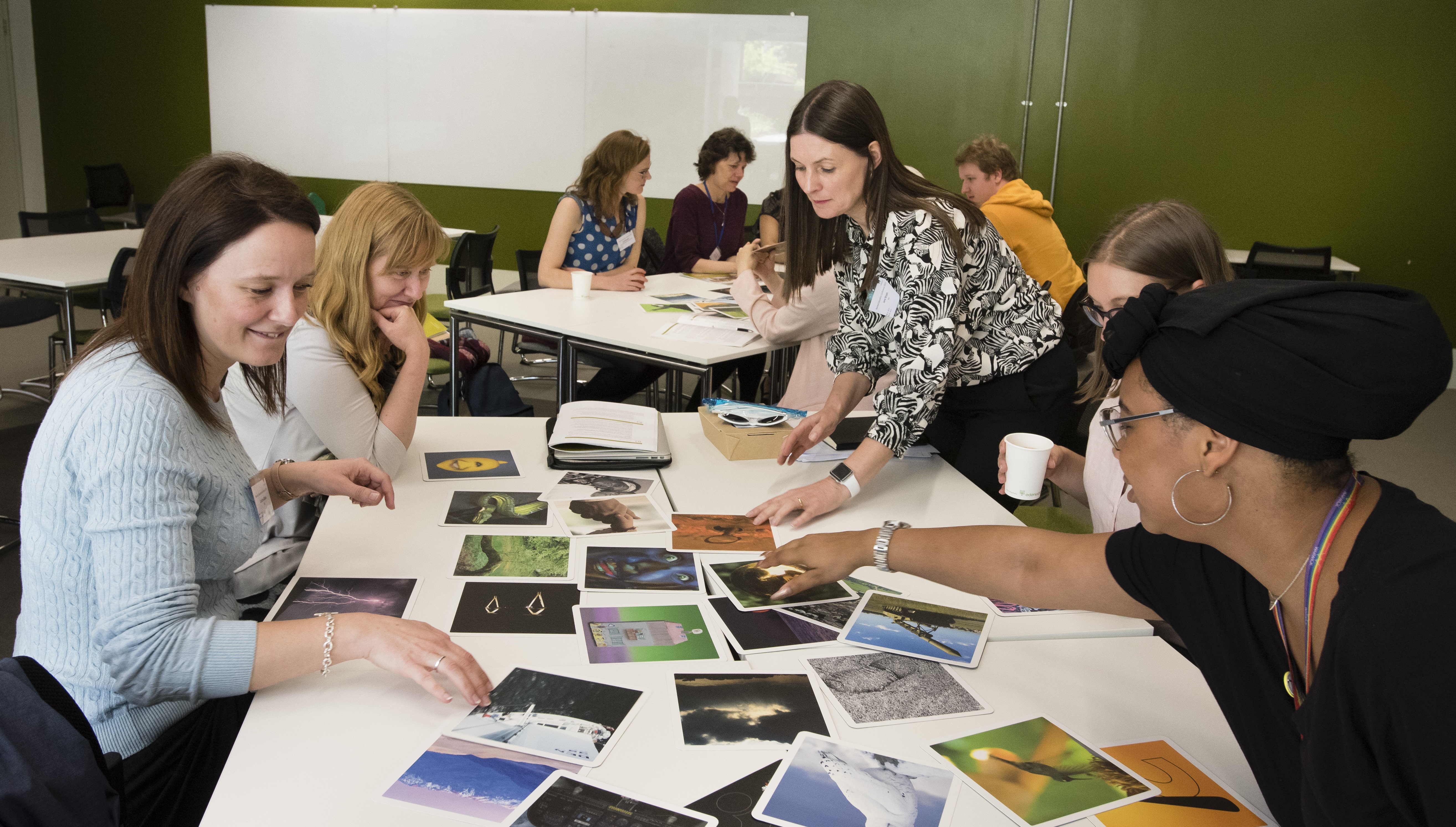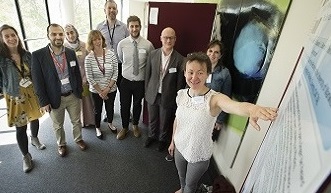Share your experiences at the Warwick Education Conference 2023

Share your experiences at the Warwick Education Conference 2023
What is the Warwick Education Conference?
The Warwick Education Conference is significant event in the academic calendar that allows us to come together as an educational community to connect, share and inspire each other through a variety of presentation and discussion-based sessions. The event provides space to bring student and staff voices together with the ultimate aim of enhancing the teaching and learning experience here at Warwick.
The theme of the event this year is ‘Empowering students and staff through small teaching’. Small teaching examines the modest but powerful changes that educators can all make that lead to big enhancements for students’ learning.
How can I be involved in the conference?
We would love you to share your experiences of small teaching activities that been impactful for your learning experience. This will be a great opportunity for staff to hear about your experiences and your perspectives on significant and impactful learning. It is also a chance for you to play a vital role in informing our discussions here at Warwick about effective teaching and support for learning.
What would my involvement look like?
We are delighted to invite you to submit a proposal for a 10-minute ‘lightning talk’ at the conference event on Thursday 22nd June 2023. These talks will be presented in-person to conference delegates and will relate to a type of small teaching that you have experienced as a learner (see ‘Types of small teaching’ boxes below). Conference delegates will be staff from the University of Warwick who teach and/or support student learning. Students from the university will also be invited to attend.
You can also get involved by participating as a panellist for our student panel session. Follow this link for more details.
How many presentations will be included?
We have up to 10 slots available for these 'lightning talk' presentations. Individual or small group presentations are welcome.
Will I receive anything for being involved?
All presenters will receive a £20 voucher. You will also receive a Certificate of Participation that will record the contribution that you have made to the conference.
Will I get any support to present?
We understand that presenting at conferences can be daunting and we will support you as much as possible to make sure that this is a positive experience for you.
Our student Event Advisors will be running an in-person support session on Saturday 3rd June 2023, 12pm - 1pm for those whose proposals are accepted. Don't worry if you can't attend, we will ensure that you are still supported to develop to your 'lightning talk' presentation.
How can I submit a proposal?
You can submit your proposal for a 10-minute lightning talk via our online proposal form.
The proposal form will ask you to:
1. Describe the small teaching activity or intervention that you experienced (100-200 words).
2. Explain why this activity or intervention was so impactful for you and/or your learning experience (100-200 words).
3. Outline the key message(s), based on your experience, that you would like to share with the Warwick education community (100-200 words).
All proposals will be reviewed by our student Event Advisors and judged on the extent to which all three points are clearly explained.
What is the deadline for submitting a proposal?
The deadline for submitting a proposal is Wednesday 24th May 2023.
Who can I contact if I have any questions?
Kerry Dobbins (conference organiser) will be happy to answer any questions that you may have. Please feel free to contact her anytime – . She is also happy to chat via Teams if you would like to talk to her.
What is small teaching?
Small teaching is a strategy developed and extended by James Lang and Flower Darby that seeks to “spark positive change in higher education through small but powerful modifications to course design and teaching practices” (Lang, 2021, p.4). As a strategy, small teaching draws on “research on learning and higher education to create a deliberate, structured and incremental approach” (Lang, 2021, p.5) to changing education practices for the better.
In addition to their books (linked to above), James and Flower discuss the topic and share insights in the following freely available Teaching in Higher Ed podcasts (full transcripts available): Small teaching with James Lang; Small teaching online with Flower Darby. James Lang also discusses the science behind small teaching in this recorded speaker series.]
Types of small teaching:

Brief in-session or blended learning activities.
These are small activities or interventions in a learning session (in-person or online, synchronous or asynchronous) that a teacher has used to achieve a particular objective. This could include things like encouraging a sense of belonging and community, providing quick opportunities for student engagement, introducing or consolidating new learning, capturing (or recapturing) students’ attention.

Small interventions in a module, programme or extended learning experience.
These are small-scale interventions that may relate to a small portion of a module, programme or extended learning experience that a teacher has used for a specific purpose. This might include things like incorporating opportunities for interdisciplinary learning experiences within one or two sessions or blended learning activities, redesigning a session or assessment activity to enhance inclusivity, co-creating with students an aspect of the curriculum, utilising approaches to support student wellbeing.

Small modifications in communications with students.
These are small changes that a teacher has used to enhance communication with students. This might include the way module information is shared or communicated, the type of language used in communications, the way assessment instructions are communicated to enhance understanding of the assessment task and criteria.
